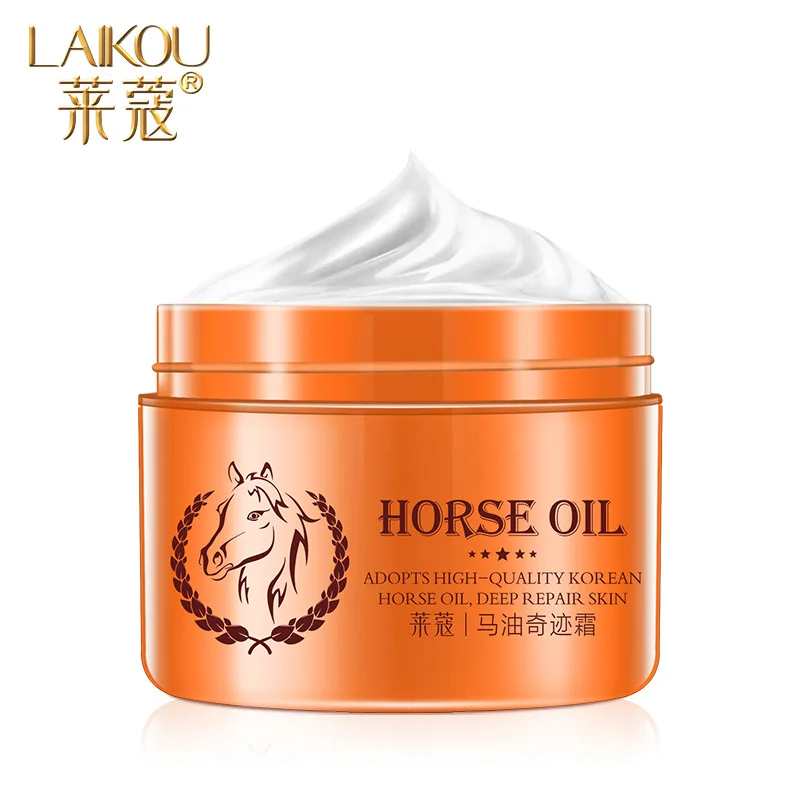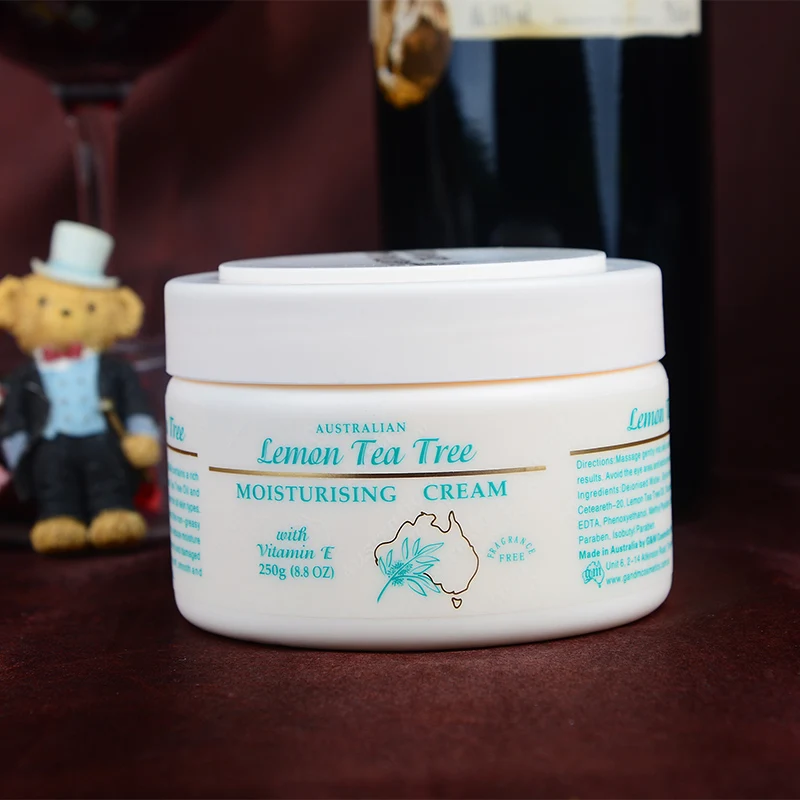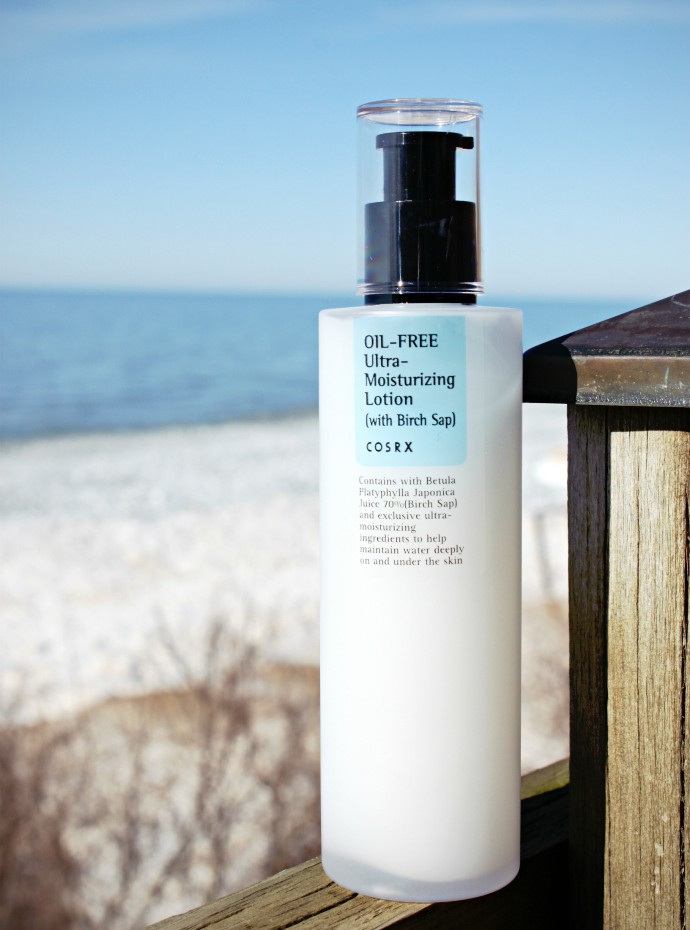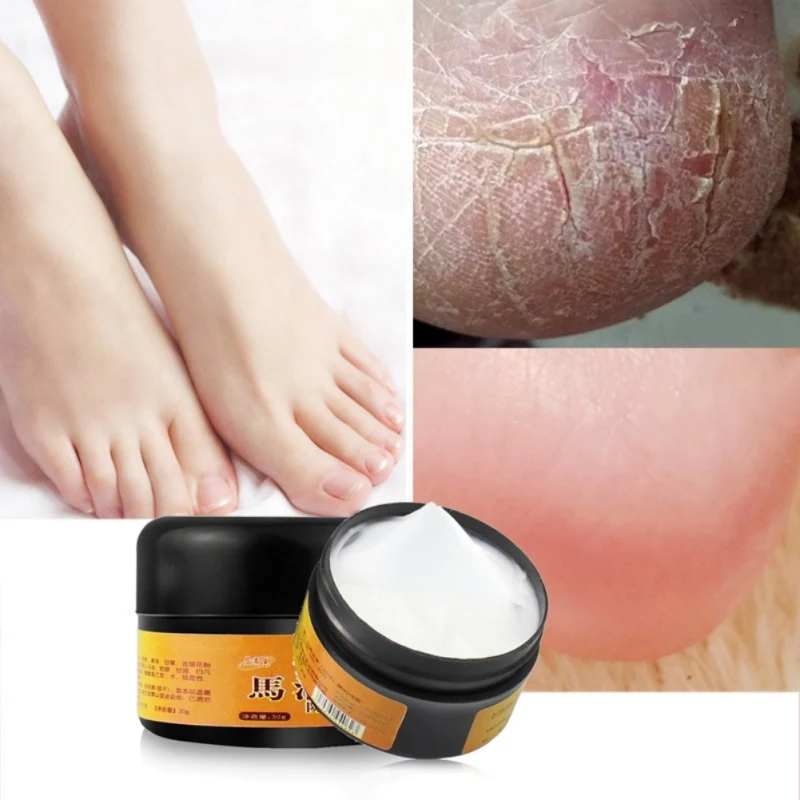Though body oils and body lotions have the same end goal—to moisturize your skin—they get the job done in different ways. "When you layer an occlusive oil on top of a lotion you get better penetration of the active ingredients in the lotion producing faster and more noticeable hydrating benefits," she says. If you're someone with oily skin, you don't have to miss out on the benefits of an oil.
"Many people feel that oily skin types cannot use oil-based skin-care products, which is not true," says Dr. Zeichner. First of all, it's essential to know which skin types react best to each moisturizer. "Bodies that suffer from body acne, ingrown hairs, and hyperhidrosis do better with lightweight moisturizers such as lotions."
By now, we all know how great oils and lotions are at keeping the skin smooth and hydrated, playing a vital role in any body care routine. But with all the options on the market in both categories, you may have a hard time deciding whether a body oil or body lotion is the better option. After all, both skin care products promise soft, hydrated skin, so what's the difference, right? Well, you can skip the Google search because we're here to share some helpful information. Read on to find out if body oil is better than lotion, so you can decide which product to add to your daily skin care routine. Humectants bring moisture to our skin, which is important for healthy skin barrier function.
The downside is that not all body creams contain the essential fatty acids that oils do. Low quality body lotions are often lighter than oils, and depending on the formula can evaporate from the skin more quickly. We obviously need a moisturizer to hydrate our skin every day but the question revolves around its capabilities and whether it'll keep our skin hydrated for the whole day or not. There are so many new and exciting products in the beauty world that it's hard to keep up with all the developments. Whether it's an oil, serum, lotion, cleanser, or balm, it seems like there's a product that promises to fix any skincare concern. Body lotions and body oils have been around forever, promise to deliver moisture to your skin, and slow natural signs of aging.
Lauren Siso, a licensed esthetician, and ALP owner of ELLEMES Medical Spa in Atlanta, Georgia, gave the details on what you need to know before choosing lotion or oil. Now you know the key difference between the formulas of body butter, body oils and body lotions. All three consistencies have a different feel on your skin and a difference of ingredients in terms of water to oil radio. Confidently choose the right pick for your skin type, concerns and needs.
However, lotion also provides much-needed moisture by penetrating the skin with its part-water formula, according to the outlet. "Look for lotions containing hyaluronic acid and ceramides—both enhance skin's water-retaining abilities over time," certified dermatologist, Rachel Nazarian, told the outlet. But, using the two together might be your best bet for deep, lasting hydration. If you're on the hunt for an oil to add into your routine, Levin recommends squalene, marula, or jojoba oil, since they can help with redness and won't clog pores, given the molecule size.
These natural oils will not only condition skin, but they're also packed with essential vitamins. Gohara mentions mineral oil-based products like Vaseline are also a great choice for most skin types. Oils to avoid in skincare are argan and coconut oil, since the molecule size is larger and therefore may contribute to acne . Using the two products together will allow for their hydrating ingredients to reach deeper layers of your skin, giving you a more moisturized effect overall. Body oils are significantly lighter and non-greasy than body creams or lotions and absorb fast without leaving a greasy behind. Those who apply body creams or lotions on a daily basis remark that they feel sticky and oily afterward.
It completely depends on what kind of oil you are using on your skin. To get the best results out of body oils, you should consider using organic and plant-based oils including jojoba oil, argan oil and such. You can make this choice based on your skin type and need, climatic condition of your city, and any specific skin concern.
While oils are well-suited for dry to extremely dry skin, lotions are more versatile and can be used by anyone. "Body oils should be used by individuals who need repair of the skin barrier and who stay in places with cold climates," suggests Dr Trasi. Whereas she suggests using water-in-oil based lotion for dry skin and oil-in-water based one for normal to oily skin. "Lotions can be used in a hot humid climate as well," she says. The type of product that you use is also heavily dependent on your skin type. For oily skin, Siso says you can use just a moisturizing lotion.
Normal to dry skin types can layer both lotion and oil as long as they are not acne prone in the areas where they're layering products, Siso adds. Both body oils and body lotions can help nourish your skin, but lotions tend to offer other benefits, too. If you have acne-prone skin you can look for lightweight lotions formulated with ingredients that won't aggravate your skin. There are thousands of moisturizing products on the market, and while you may have been loyal to body lotions your whole life, nowadays, body oils are giving them a run for their money.
We enjoy using both of them but were curious to find out if one was better than the other. To answer our questions, we spoke to three skincare experts to ask how body lotions and body oils stack up against each other, and if one reigns supreme. While both are meant to moisturise the skin, what's the key difference between the two? Body oils are used to reintroduce moisture in the skin; they penetrate deep into the skin and work on moisture level whereas body lotions, available in various forms, are used to target a specific concern.
The other and the most important difference lies in their ingredient composition. "Body oils are made from nuts and vegetables like almond, coconut, avocado, jojoba etc. In conclusion, facial oils are definitely better than commercial moisturizers. They have many benefits including getting rid of acne, preventing premature aging, and managing fine lines and wrinkles.
Not to mention that most of them on the market are all-natural and safe to use. However, you should take into consideration that some of them may cause irritation or other side effects. Before using any oil on your face, make sure that it is safe to use on your skin by doing some research first.
If you start using a face oil and start to get a rash or pimples it is best that you consult with a professional as there might be an underlying issue. Some people have issues with conventional moisturizers, they might make your skin feel even dryer, or oilier because they have ingredients that are quite questionable. If you are one of these people then maybe face oils are the perfect solution to your problem.
"I do find that a lot of people who only use oils are actually really dehydrated or their skin barrier is compromised underneath all that application of oils," adds Levin. We all all need to find that perfect balance between occlusives and humectants. If you like to pat an oil on your skin, do so after a lightweight lotion.
If you apply a humectant-heavy serum or lotion on top of an oil or oil-reach cream, all you'll accomplish is wasting product. Right after hopping out of the shower, be sure to apply a body oil to help seal in moisture. Body oils formulated with plant-based skin care ingredients like jojoba, sunflower seed, and avocado are great for locking in moisture because these natural ingredients are similar to the ones found in our skin.
These oils are then able to absorb quickly and help repair the skin's moisture barrier, which will help your skin stay hydrated. But it's also worth noting that, while they moisturize, they do so differently than cream and lotion moisturizers, which typically contain both oils and hydrating ingredients together in a single formula. "I don't believe that they should replace traditional moisturizer use." THE WELL body oils have lipids of varying sizes, which both sit on the surface of the skin and penetrate. Triglycerides from almond and avocado moisturize the skin, while the oleic acid in coconut oil helps penetrate. Sea buckthorn oil, another carrier oil used in THE WELL body oils, is rich in both phospholipids and omega-3, -6, -7, and -9 fatty acids, which studies have shown to have protective, skin-nourishing benefits.
Moisturizer is made to maintain the natural oil of your skin by providing it with extra moisture. On the other hand, face oils contain a high concentration of fatty acids and other ingredients that can penetrate deep into the skin, nourishing it from within. They have the ability to improve skin elasticity and provide a protective barrier against dehydration. Body oils work to bring moisture back into your skin and sink directly into your cells, the outlet notes. Think of oil as the substance that dives deep to moisturize from within.
The constitution of skin oils often resembles that of our natural oils, meaning that they work similarly to our body's natural hydration processes. This simulation aids in repairs such as skin regeneration and regulation of its moisture barrier, Byrdie reveals. Plus, oils often contain more natural ingredients than lotions do, with fewer synthetics and potential irritants. Essentially, oils were much more available hundreds of years ago, before mass-produced products were on store shelves. Aguilar recommends using oil during colder, dry months and switching to lightweight lotions during the hotter summer months.
Below, read these experts' pros and cons for body oils and body lotions. Body oil actually isn't better than lotion, but that also doesn't mean lotion is better than body oil either. As you can imagine, with different formulas, each has its own ideal uses. And instead of trying to pick one over the other, it's best to figure out when to use each one.
Sometimes you'll want to reach for an oil and sometimes a lotion may be a better fit. Or you can layer one on top of the other, just like facial oil and moisturizer. The latter will never be just an oil alone, but other types of moisturizers can be — especially emulsions. Cosmetic chemist Krupa Koestline emphasizes that hydration and moisturization are two very different things, and brands that say their oils are hydrating are incorrectly using the two words interchangeably. "Hydration in skin care means applying water or water-binding ingredients to your skin," like hyaluronic acid or glycerin, she tells Allure.
"Moisturization, on the other hand, means lubricating the skin with emollients, thereby reducing dryness and transepidermal water loss." They are applied on the skin after cleansing, and you should not use them too often and no more than 1-2 times per day. Apply 5-6 drops of oil on the face and massage it gently to get the benefits. You can also combine face oils with other skincare products that you usually use. Contrary to what many think, body oil works best for oily skin because it decreases your body's natural sebum production, Byrdie reports.
Is oil more moisturizing than lotion By adding a moisturizer that imitates the natural process, your body can slow down its own creation of oil — leaving less on the skin to cause breakouts. Basically, body oil proves to be a much denser addition to your skincare routine with long-lasting benefits. When it comes to hydration, not all products are created equal. Especially for those with oily ordry skin, there are often better times to use one product rather than another. Byrdie explains the difference succinctly by describing oil as "food" for the skin, while lotion simply soothes various skin concerns with water-based formulas.
The short answer is yes, oils are part of the moisturizing process. First, one must understand the difference between an occlusive and a humectant, the two main types of skin moisturizers. An occlusive is a heavy cream or oil that seals moisture just like plastic wrap but for your skin. Because what good is moisture if it evaporates right off your face? A humectant is an ingredient that draws in water from the environment or the lotion itself, like glycerin or hyaluronic acid.
While oils help to replenish nutrients in the skin, lotions work to treat different skin care concerns ranging from dryness to itch relief. They come in various forms and, according to the Mayo Clinic contain a higher percentage of water which makes them an ideal pick for those with sensitive or oily skin. Dindio likes to use the brick-and-mortar analogy, wherein the bricks are the skin cells and the mortar is composed of lipids, to explain oil's role in moisturizing skin. "The lipids — mortar — can be stripped away under hash conditions which render the skin dry. Oils can help replenish this lipid layer that is stripped away to moisturize the skin," he explains. "A strong skin barrier will prevent water from escaping, therefore keeping the skin hydrated."
For those suffering from intensely dry skin, the combination of the two products can offer an even deeper layer of moisture. The outlet suggests adding a few drops of body oil to your lotion for a nourishing elixir that will have your skin looking supple in no time. Like we said, body oil is great for applying straight out of the shower, but if you're looking to give your skin a dose of hydration throughout the day, turn to lotion for your moisturizing needs. Try using the L'Oréal Paris Age Perfect Hydra Nutrition Manuka Honey All Over Balm - Face/Neck/Chest/Hands, which smells as great as it feels thanks to its honey-inspired fragrance. Formulated with nurturing oils, this moisturizer helps to soothe and soften the skin, leaving it with a healthy glow.
If you have dull-looking skin, try incorporating a body oil into your skin care routine. Some oils are designed with a higher concentration of moisturizing ingredients, helping to give off a hydrated and glowy appearance. So grab your favorite body oil and smooth it onto your legs and arms for that aforementioned natural-looking glow. If you're wondering how a body oil is different from a lotion, the answer lies in its fatty content.
Some of the most important among them are linoleic and oleic acids; these fatty acids are also known as omega-6 and omega-9. They're important for protecting our skin barrier, since they play a role in helping us fight off sun damage and skin aging. Although Dr. Fromowitz doesn't believe that face oils should replace traditional moisturizers, they do have a rightful place in a skin-care routine. "Oils can be used a couple of days a week, typically in the evening after cleansing, to keep the surface of the skin hydrated and help keep other products where they belong," he recommends.
Moisturisation is arguably the most important part of a skincare routine. Moisturised, hydrated skin helps protect it from irritation and enables you to shed dead skin cells effectively. In contrast, body oils contain very few, easily understood ingredients. Many oils and essential oils also have antimicrobial properties that naturally protect against bacteria, so there's no need to add extra preservatives to keep out the bad guys. THE WELL body oilsalso add in rosemary extract to naturally maintain the product's freshness. This kind of purity and transparency means there is nothing to hide.
Every body lotion has a different formula, but ones that have fragrance and some additives can cause inflammation or a negative reaction if you have sensitive skin or are allergic to a certain ingredient, explains Tobia. "If you have really dry skin, adding a body oil to a body lotion makes total sense—especially when winter comes and the skin starts to crack," says Dr. Walch. You may think that a body oil would be more hydrating than lotion, but that isn't always the case. Lotions tend to be formulated with water, which in turn helps your skin stay hydrated. In fact, lotions are usually a mix of oils and water, making them the best of both worlds for skin that's in need of moisture and hydration.




























